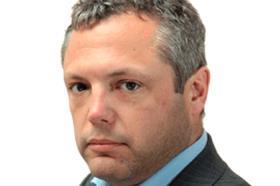When sorrows come, they come not single spies but in battalions. Such is the predicament of the Solicitors Regulation Authority, which was hit with a barrage of criticism this week over its allegedly ill-conceived plans for greatly increased fining powers.

The City of London Law Society led the assault, pungently asserting that the proposals might be vulnerable to judicial review. Birmingham Law Society, and then the Law Society itself, followed up with their own excoriating critiques.
Meanwhile, the SRA is still nervously awaiting publication of the Legal Services Board’s report into its actions ahead of the spectacular implosion of Axiom Ince. A report was promised by the spring, with the inquiry later widened in scope to include the almost equally vivid demise of Sheffield firm SSB Law.
The clocks go back a month from today. Still nothing. Hefty hikes in compensation fund contributions remain in limbo.
Read more
All of which provides intriguing context for the SRA’s announcement that it has called off its search for a new chair. Anna Bradley has been reappointed to the £105,000-a-year post for another two years. ‘Recent developments – including evidence of shifting risks in the legal sector – mean that this is not a steady state period for the SRA,’ the regulator explained. ‘As a result, there is significant organisational development scheduled for the next two years, which will be reflected in changes to our business plan.’
This is not wholly convincing. Our quangocracy is packed with seasoned establishment worthies who would likely suit the post to a tee. A change might even provide a refreshingly new perspective as the beleaguered watchdog adapts to its ‘unsteady state’.
If continuity is the watchword in the boardroom, I cannot be alone in wondering whether Bradley’s extension might be linked to the possible departure – even retirement – of chief executive Paul Philip. It’s an obvious inference to draw, but the SRA waved me away when I asked if he might be leaving.
Few politically exposed regulators employ CEOs who stick around for a decade or more, but Philip has. During that impressive span he has broken bread with no fewer than half a dozen (permanent and acting) chief executives of the Law Society.
Philip must be closer to the end of his tenure than the beginning. What one can say for certain is that if he is sticking around, the next two years of his leadership will be the toughest yet.































1 Reader's comment